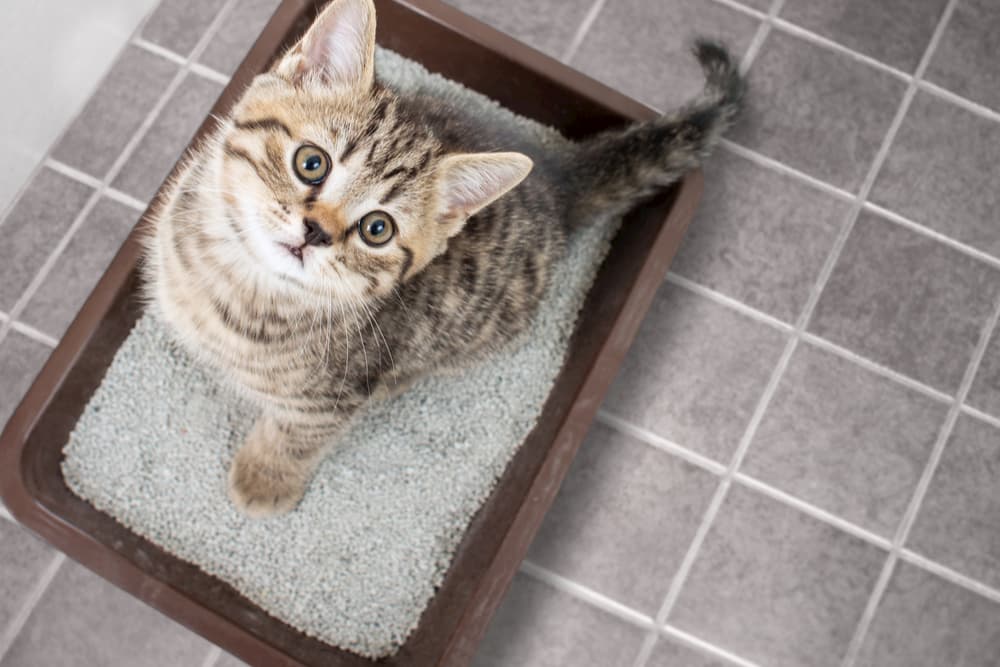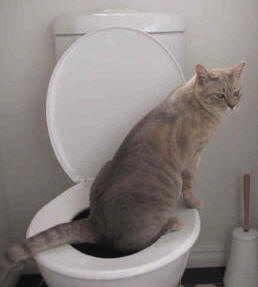The Consequences of Flushing Cat Poop Down Your Toilet - Protect Your Plumbing
The Consequences of Flushing Cat Poop Down Your Toilet - Protect Your Plumbing
Blog Article
The article author is making a few good pointers on Don’t flush cat feces down the toilet overall in this great article which follows.

Introduction
As feline proprietors, it's essential to be mindful of exactly how we dispose of our feline good friends' waste. While it may appear practical to purge feline poop down the bathroom, this technique can have damaging repercussions for both the setting and human wellness.
Alternatives to Flushing
Thankfully, there are more secure and extra responsible methods to take care of cat poop. Think about the complying with options:
1. Scoop and Dispose in Trash
One of the most usual approach of disposing of cat poop is to scoop it into a biodegradable bag and toss it in the trash. Be sure to use a devoted trash inside story and take care of the waste promptly.
2. Use Biodegradable Litter
Choose naturally degradable cat litter made from materials such as corn or wheat. These litters are environmentally friendly and can be safely taken care of in the garbage.
3. Bury in the Yard
If you have a yard, take into consideration hiding pet cat waste in a marked location far from veggie gardens and water sources. Be sure to dig deep enough to stop contamination of groundwater.
4. Mount a Pet Waste Disposal System
Invest in an animal waste disposal system specifically designed for cat waste. These systems make use of enzymes to break down the waste, lowering smell and environmental impact.
Health Risks
In addition to ecological concerns, flushing pet cat waste can additionally posture health and wellness risks to human beings. Cat feces might have Toxoplasma gondii, a bloodsucker that can cause toxoplasmosis-- a potentially extreme health problem, especially for pregnant females and individuals with weakened body immune systems.
Ecological Impact
Flushing pet cat poop presents damaging pathogens and bloodsuckers into the water supply, presenting a considerable risk to water environments. These contaminants can adversely affect marine life and concession water high quality.
Conclusion
Accountable pet possession extends past offering food and sanctuary-- it also includes proper waste monitoring. By avoiding flushing feline poop down the toilet and selecting alternative disposal approaches, we can reduce our ecological impact and safeguard human wellness.
Why Can’t I Flush Cat Poop?
It Spreads a Parasite
Cats are frequently infected with a parasite called toxoplasma gondii. The parasite causes an infection called toxoplasmosis. It is usually harmless to cats. The parasite only uses cat poop as a host for its eggs. Otherwise, the cat’s immune system usually keeps the infection at low enough levels to maintain its own health. But it does not stop the develop of eggs. These eggs are tiny and surprisingly tough. They may survive for a year before they begin to grow. But that’s the problem.
Our wastewater system is not designed to deal with toxoplasmosis eggs. Instead, most eggs will flush from your toilet into sewers and wastewater management plants. After the sewage is treated for many other harmful things in it, it is typically released into local rivers, lakes, or oceans. Here, the toxoplasmosis eggs can find new hosts, including starfish, crabs, otters, and many other wildlife. For many, this is a significant risk to their health. Toxoplasmosis can also end up infecting water sources that are important for agriculture, which means our deer, pigs, and sheep can get infected too.
Is There Risk to Humans?
There can be a risk to human life from flushing cat poop down the toilet. If you do so, the parasites from your cat’s poop can end up in shellfish, game animals, or livestock. If this meat is then served raw or undercooked, the people who eat it can get sick.
In fact, according to the CDC, 40 million people in the United States are infected with toxoplasma gondii. They get it from exposure to infected seafood, or from some kind of cat poop contamination, like drinking from a stream that is contaminated or touching anything that has come into contact with cat poop. That includes just cleaning a cat litter box.
Most people who get infected with these parasites will not develop any symptoms. However, for pregnant women or for those with compromised immune systems, the parasite can cause severe health problems.
How to Handle Cat Poop
The best way to handle cat poop is actually to clean the box more often. The eggs that the parasite sheds will not become active until one to five days after the cat poops. That means that if you clean daily, you’re much less likely to come into direct contact with infectious eggs.
That said, always dispose of cat poop in the garbage and not down the toilet. Wash your hands before and after you clean the litter box, and bring the bag of poop right outside to your garbage bins.
https://trenchlesssolutionsusa.com/why-cant-i-flush-cat-poop/

I was shown that article about How to Dispose of Cat Poop and Litter Without Plastic Bags through a good friend on a different web address. Sharing is caring. Helping people is fun. We treasure reading our article about Don’t flush cat feces down the toilet.
Call Today Report this page